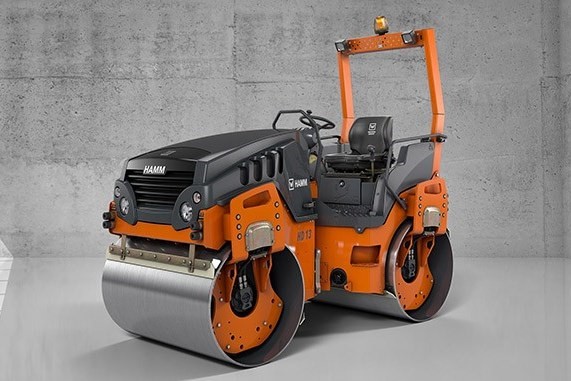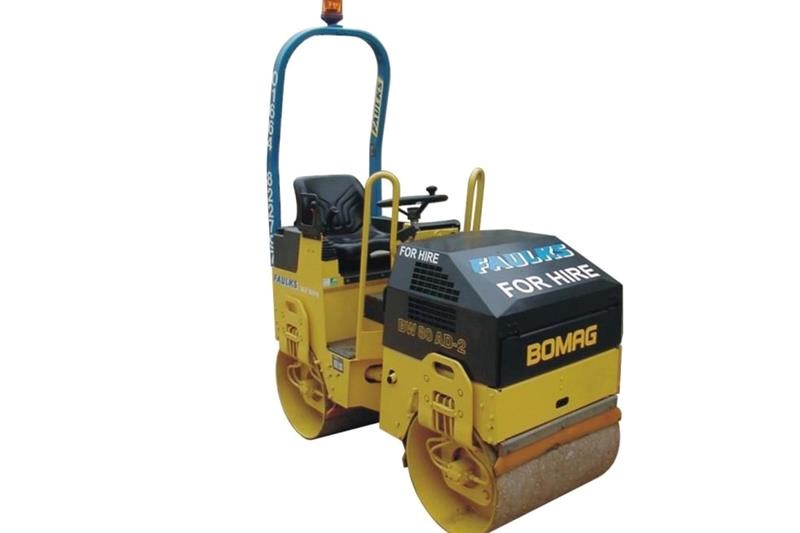Roads are essential to infrastructure all around the world, yet many people might not understand all the hard work that goes into creating them. It takes a lot of experience, patience and a keen understanding to get the job done right. And compaction is an important part of the process.
Here at AE Faulks, we’re specialists in plant hire, so we know a few things about road compaction, which is why we’ve put together a do’s and don’ts to help you make the job as stress-free as possible.

Do
- Consider the soil moisture
The moisture levels of the soil you’re compacting plays an important role in the process. You will need to know the type of soil you’re dealing with, as different types will have different densities and moisture levels. There’s a happy medium needed for moisture levels for compaction; too little moisture and this will result in poor compaction, but too much and you risk weakening the stability.
The simplest way to know what you’re working with is a simple hand test: grab a handful of soil and squeeze it before releasing your hand and letting the soil drop. The ideal soil will allow for you to mould it in your hands when squeezed but will break up into pieces when dropped. Too dry and the soil will become powdery and break into fragments when dropping, whereas if the soil remains intact when dropped then it contains too much moisture to be compacted.
- Use the correct equipment
There are different kinds of equipment available for compaction, varying in sizes that make them suited to certain applications. Take the Bomag BW80AD-2 available for hire from AE Faulks, this compact twin drum sit-on roller is suitable for use on small and narrow construction sites and suits applications such as driveways, footpaths, cycle ways and highway maintenance. However, the HAMM HD13VV is a larger model that is more suited to applications such as car parks and roadways.
You should always ensure any equipment you use for a job is well maintained, meets relevant safety requirements and is suited to the job at hand. You can contact us at AE Faulks to ask any questions about any of our compaction equipment if you’re unsure.
- Consider the types of vehicles that will use the road
Before you begin any construction work, you should consider the types of vehicle that are likely to be using this new road. This can help to determine the ideal path and width of the road, as well as considerations to do with the base material needed.
A gravel road that needs to support heavy-duty commercial vehicles will need to have fewer bends to accommodate the limited manoeuvrability of these vehicles. It will have to withstand much more than a road that is likely to only experience lighter vehicles and/or roads with less traffic.
- Hire an experienced machine operator
If you don’t have the appropriate training or experience to operate a machine for compaction, make sure you hire a professional to do the job. Getting the job done correctly can take a machine operator many years of experience, so don’t let an inexperienced worker operate a piece of machinery they’re unfamiliar with.
At AE Faulks, our operatives have many years site experience, are CPCS Blue card accredited and ‘fitness for work’ certified with the capability to operate our plant hire machinery at its most productive.
Don’t
- Over compact
You may think that the more you compact the soil, the stronger it becomes, but this is not the case. Soil has its breaking point, at which point the over compaction will cause a separation within the soil mix that reduces its support capability.
The soil can become over compacted if the operator makes too many passes in one direction with the machine, and this can reduce soil density.
- Under compact
On the other side, soil can also be under compacted which causes different issues. It can be the result of using the wrong kind of equipment or if the operator does not make enough passes with the compactor. Under compaction results when the particles in the soil are too soft so don’t obtain the cohesion needed to create the right amount of density.
Under compaction leads to uneven settlement of the soil, and this unevenness won’t be able to bear the weight of the structure, leading to structural issues.
















